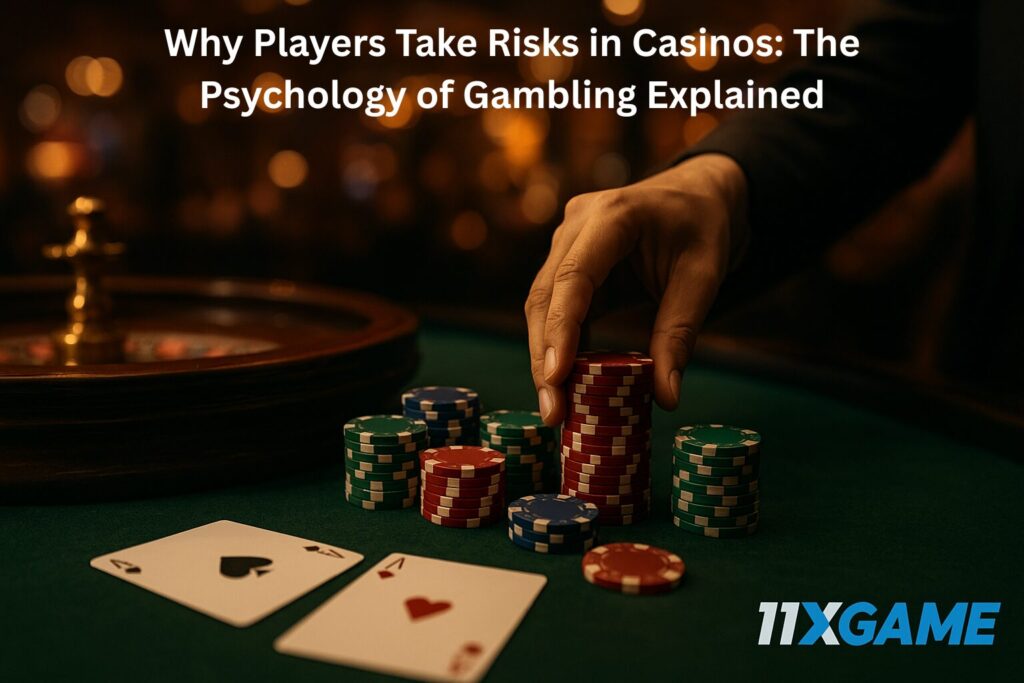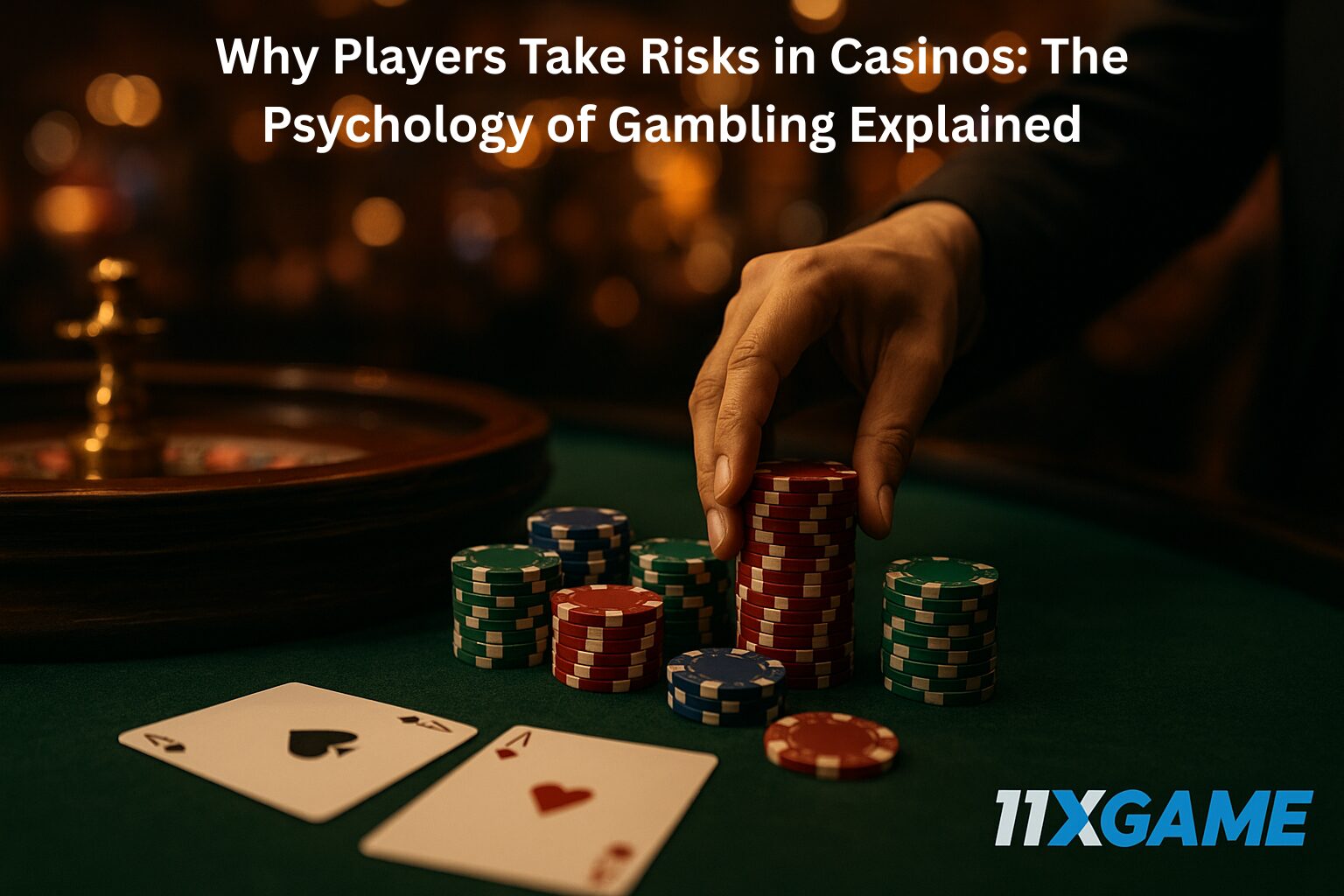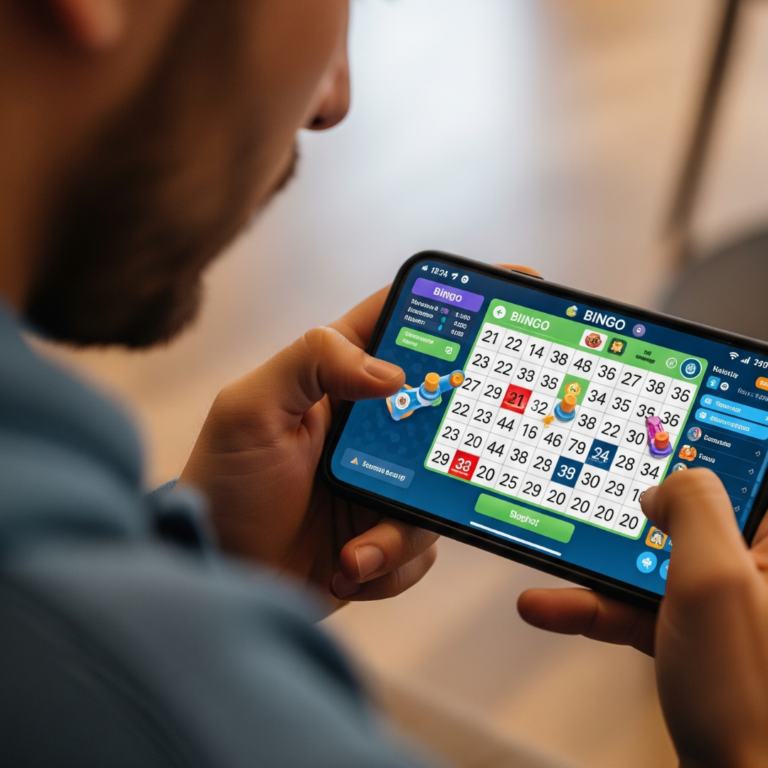Why Players Take Risks in Casinos: The Psychology of Gambling Explained
Why do players take risks in casinos, even when they know the odds are stacked against them? Gambling is as much about psychology as it is about money. The thrill of winning, the excitement of chance, and the hope of hitting a jackpot all combine to make risk-taking a natural part of the casino experience.
But there’s more going on behind the scenes — human emotions, cognitive biases, and even brain chemistry all play a role in how we behave when we gamble. Understanding this psychology is the first step toward making smarter choices, keeping play fun, and avoiding common pitfalls.
In this article, we’ll explore why players take risks in casinos, what drives these decisions, and how understanding these psychological factors can help you stay in control while still enjoying the games you love.
What Is Risk-Taking in Gambling?
Risk-taking in casinos refers to the willingness to place bets where the outcome is uncertain and there is a possibility of losing money. This can be as small as spinning a slot machine or as big as putting a large amount on a single roulette spin.
Casinos are built around risk — the entire business model thrives on players taking chances. But not every risk is bad. For many, taking risks is entertaining because it creates suspense and engagement. The key is understanding the difference between healthy risk-taking (playing for fun within a budget) and reckless risk-taking (chasing losses or betting money you cannot afford to lose).

Why the Human Brain Loves Gambling
Humans are wired to seek rewards. When we win — even a small amount — our brain releases dopamine, the “feel-good” chemical. This creates a sense of excitement and encourages us to repeat the behavior.
Casinos enhance this psychological effect by designing games with lights, sounds, and fast results that stimulate the brain. Near-miss outcomes (like two jackpot symbols appearing on a slot machine with the third just missing) can be just as powerful, triggering the same brain regions as an actual win. This keeps players engaged and taking more risks.
Cognitive Biases That Lead to Risky Decisions
Several mental shortcuts and biases influence how we gamble:
- Gambler’s Fallacy: The belief that past results affect future outcomes. For example, thinking a roulette wheel is “due” to land on red after several blacks in a row.
- Illusion of Control: Feeling that skill can influence purely random games like slots or roulette.
- Confirmation Bias: Remembering wins more vividly than losses, which can make you think you’re luckier than you are.
- Optimism Bias: Overestimating your chances of winning compared to reality.
Understanding these biases can help players recognize when they are making decisions based on emotion rather than logic.
Emotional Triggers Behind Risk-Taking
Risk-taking is often driven by emotions:
- Excitement: The thrill of uncertainty and potential reward.
- Boredom: Gambling as a way to add excitement when nothing else is happening.
- Stress Relief: Some people gamble to escape daily stress, which can lead to risky behavior.
- Chasing Losses: The emotional urge to win back lost money, often leading to bigger losses.
Being aware of these triggers helps players pause and think before placing a bet.
Social and Environmental Factors
Casinos are designed to encourage risk-taking. Bright lights, music, and the sound of coins create a stimulating environment that keeps players engaged. Online casinos use similar techniques — animations, bonus notifications, and leaderboards — to maintain interest.
Peer influence also plays a role. Players may take bigger risks when they see others winning or when playing in a group. The desire to impress friends or not miss out on the fun can lead to higher bets.
How Understanding Psychology Can Improve Your Play
By understanding the psychology behind gambling, players can make more rational choices:
- Set Limits: Decide how much money and time to spend before playing.
- Take Breaks: Step away from the game to reset emotionally.
- Track Results: Keep a log of wins and losses to stay realistic.
- Play for Entertainment: Treat gambling as fun, not as a way to make money.
These steps can reduce impulsive decisions and keep the experience positive.
Responsible Gambling Tips
Risk-taking is part of the fun, but it must stay within healthy boundaries:
- Never gamble with money meant for bills or savings.
- Use responsible gaming tools like deposit limits and reality checks.
- Avoid gambling when tired, stressed, or under the influence of alcohol.
- Seek help if gambling stops being fun or causes financial harm.
(This article is for informational purposes only. Gambling involves risk. Please bet responsibly. Always check local laws before playing & follow the law.)
Final Thoughts
Players take risks in casinos for many reasons — the excitement of chance, the anticipation of winning, the rush of dopamine that accompanies even small successes, and the subtle influence of their surroundings. The sights, sounds, and atmosphere of both physical and online casinos are carefully designed to stimulate the senses and encourage engagement, making risk-taking feel natural and even thrilling. By understanding these psychological factors, you can approach gambling with greater awareness, make more informed choices, and maintain control over your behavior while still enjoying the experience.
It’s important to remember that the goal of gambling is not to eliminate risk entirely — risk is inherent to every game. Rather, the objective is to manage risk wisely. By setting clear financial limits, establishing time boundaries for each session, recognizing emotional triggers that might lead to impulsive decisions, and avoiding common cognitive traps such as the gambler’s fallacy or illusion of control, you can enjoy casino games in a balanced and responsible manner.
Managing risk effectively also allows players to appreciate the entertainment value of gambling without feeling pressure to chase losses or pursue unrealistic wins. Keeping a level-headed approach ensures that gaming remains a source of fun, excitement, and strategic engagement rather than stress or financial strain. Over time, disciplined play helps develop self-awareness, better decision-making, and a deeper understanding of both the games themselves and your own habits as a player.
Ultimately, when risk is managed intelligently, gambling can remain a healthy form of entertainment — one where the thrill of chance is enjoyed safely, and the experience is rewarding in terms of fun, learning, and personal growth.
FAQ: Understanding the Psychology of Gambling and Risk-Taking
Q1: Why do people take bigger risks when gambling?
People take bigger risks due to emotional excitement, the anticipation of rewards, and brain chemistry. Dopamine released during wins or near-misses encourages continued risk-taking. Environmental cues, peer influence, and cognitive biases also play a role.
Q2: What is the gambler’s fallacy?
The gambler’s fallacy is the mistaken belief that past outcomes affect future results in games of chance. For example, thinking a roulette wheel is “due” to land on red after several blacks is a cognitive bias that can lead to risky bets.
Q3: How does dopamine affect gambling behavior?
Dopamine, a neurotransmitter associated with pleasure and reward, is released when players win or experience near-misses. This chemical reinforces behavior, making players more likely to continue taking risks even when losses occur.
“For more educational resources and responsible gaming tips, visit 11xGame to stay informed and safe while enjoying your favorite sports.”






